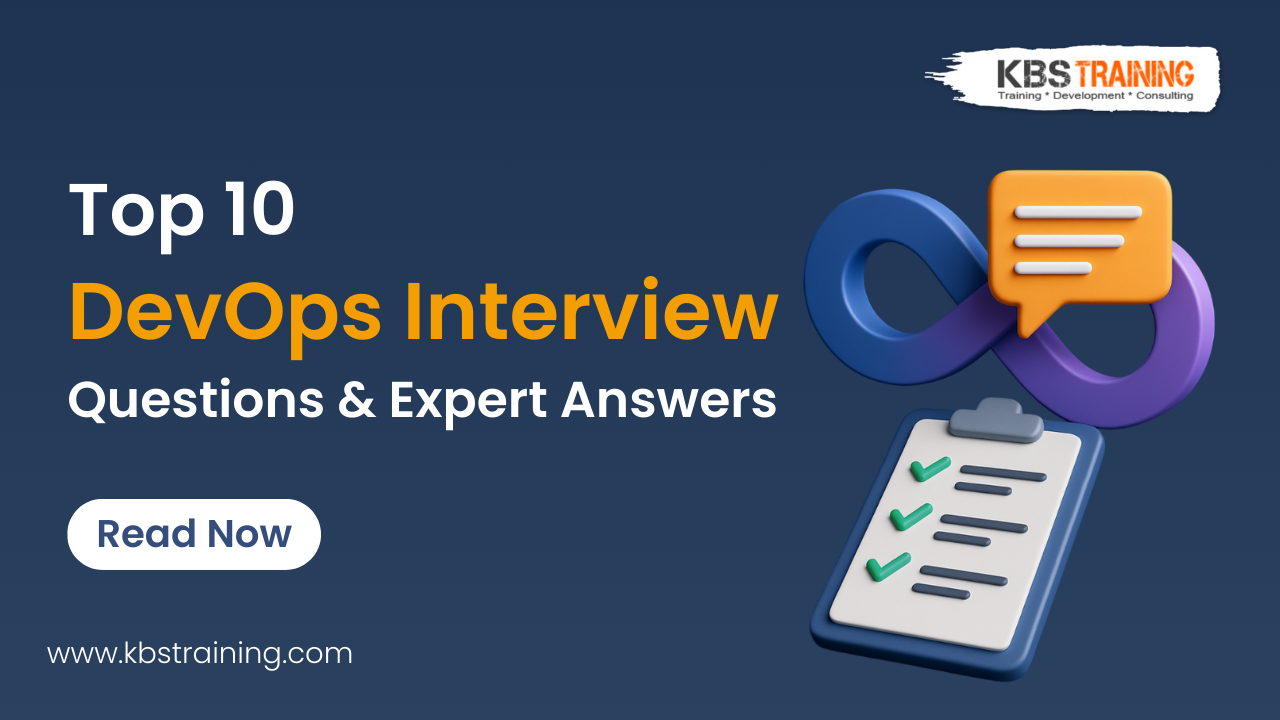In today’s tech-driven world, landing a DevOps role requires more than just buzzword knowledge—you need to demonstrate real understanding and hands-on experience. Whether you’re applying for a junior DevOps role or a senior position, here are the top 10 DevOps interview questions that hiring managers love—and how you should answer them.
1. What is DevOps and why is it important?
DevOps is a cultural movement that bridges the gap between software development and IT operations. It promotes automation, collaboration, and continuous improvement across the software development lifecycle.
🧠 Tip for your answer: Emphasize business agility, faster deployments, better quality, and shared responsibility.
2. Explain the DevOps lifecycle.
The DevOps lifecycle is a continuous loop involving:
Plan → Code → Build → Test → Release → Deploy → Operate → Monitor.
Each stage includes feedback loops that help teams continuously learn and improve. This non-linear approach makes rapid, incremental delivery possible.
3. What are some common DevOps tools?
Popular DevOps tools include:
-
Git for version control
-
Jenkins, GitLab CI for CI/CD
-
Docker, Kubernetes for containers
-
Terraform, Ansible for Infrastructure as Code
-
Prometheus, Grafana for monitoring
🎯 Pro Tip: Don’t just name tools—explain what problem each one solves.
4. What is Continuous Integration (CI) and Continuous Delivery (CD)?
-
CI: Regularly merging code with automated tests and builds to catch bugs early.
-
CD: Automates the release of code to staging or production after CI.
💬 Bonus Point: “CI focuses on integration and testing, CD ensures deployment is automated and repeatable.”
5. How do you handle Infrastructure as Code (IaC)?
“I use tools like Terraform or CloudFormation to manage cloud infrastructure through version-controlled configuration files. This promotes consistency and eliminates manual errors.”
✅ Benefits: Scalability, repeatability, fast recovery, and auditability.
6. Why is monitoring critical in DevOps?
Monitoring is the backbone of a stable DevOps practice. It provides visibility into system health, performance bottlenecks, and customer experience. Tools like Prometheus and Grafana track metrics and logs in real-time.
💡 Observability > Monitoring: The ability to ask questions about system behavior in real-time is key.
7. How do you handle version control in DevOps?
“I use Git with strategies like GitFlow or trunk-based development. Pull requests, peer reviews, and static analysis tools help maintain high code quality.”
🛠️ Bonus: Highlight rollback capabilities and traceability benefits.
8. How do you ensure security in the DevOps pipeline?
This is where DevSecOps comes in:
-
Static/Dynamic Code Analysis
-
Container vulnerability scanning
-
Secrets management (e.g., Vault)
-
CI/CD pipeline security policies
🛡️ “Security is integrated—not added at the end.”
9. How do you handle rollbacks in case of deployment failure?
-
Use strategies like blue-green deployments or canary releases.
-
Automate rollbacks with monitoring triggers.
-
Always test in staging environments before full release.
🚨 Show you understand risk mitigation.
10. How do you foster collaboration between dev and ops teams?
-
Shared tools and dashboards
-
Blameless post-mortems
-
Cross-functional teams
-
Regular sync-ups and open communication
🔁 “Collaboration is a mindset—not just a process.”
🧠 FAQs
Q: Are these questions suitable for all DevOps levels?
Yes. While foundational, your depth of answer is what determines your level.
Q: Should I memorize these answers?
Nope. Understand the concepts and back them up with real examples or past experiences.
Q: What’s the best way to prepare for DevOps interviews?
Build real projects, use CI/CD pipelines, set up monitoring dashboards, and stay updated on DevSecOps trends.
🔚 Final Thoughts
These DevOps interview questions go beyond the basics. They’re your chance to show you not only know the tools—but that you understand the principles, practices, and value DevOps brings to an organization.
When in doubt, remember: automation, collaboration, continuous improvement.
Consult Us Form: Click Here
Contact Us : WhatsApp
Register now for a FREE consultation to take your career to the next level
For Mail: Click Here | For More Info : Click Here

